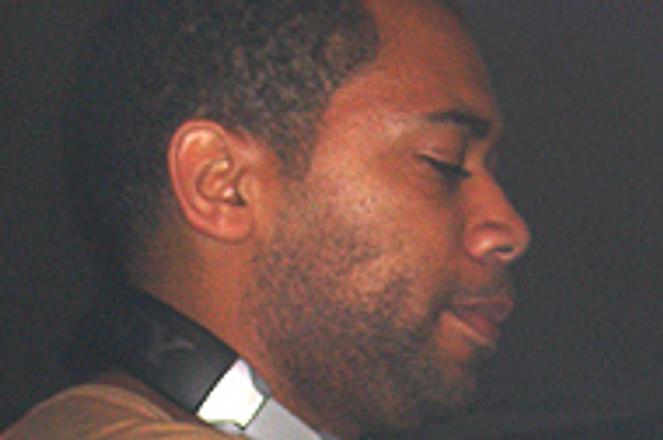CARL Craig spinning.photo: Eric Smillie
ONE of the founders of electronic dance music, Carl Craig, graced the stage of the Pohoda festival on July 17.
A member of Detroit's second wave of techno composers, Craig began his career as a producer and DJ more than 15 years ago under the influence of techno "godfathers" such as Derrick May and Kevin Saunderson. Recorded under a number of aliases and his own name, Craig's music has shaped the development of dance music genres as varied as drum'n'bass and house. His often soulful and jazzy compositions have achie-ved permanent relevance by being both experimental and eminently listenable.
The Slovak Spectator (TSS): Much of your work is openly conceptual. Why?
Carl Craig (CC): I grew up listening to concept albums. It's really funny because I was born in 1969, and there are a lot of conceptual, crazy moog albums - just out-there records that came out during that time. I think it's something that not only influenced me subliminally - that I might have been hearing as I grew up. I've always been prone to want to put together albums that made a statement, instead of being a bunch of songs.
TSS: What is the connection between electronic music and jazz?
CC: I've always said that the people who are into electronic music, that feel electronic music and respect it, look at it in a very similar way as a jazz listener would, where they really take the ideal very seriously. If you go outside of the boundaries that are set on you then you're not seen as real techno or real house or whatever the situation may be. That's the first step.
Then, if you look at a UR [Underground Resistance record label] record, the way it builds up, I think that it builds up in a very similar way to a Coltrane record where it's very spiritual; it starts at a point and completely goes into outer space. And that's what a UR record does. There's just a spirituality that's really right on the same track as jazz.
TSS: Do the Motown and soul music roots of Detroit influence the techno that came afterwards?
CC: I think that it definitely did. The later Motown things, the revolutionary things, Norman Whitfield - he was straight up techno, a lot of the mood that went into the Temptations' music, like Papa was a Rolling Stone, is really dark and really techno. The same thing with Too High by Stevie Wonder. Those moods really influenced what happened with my music, especially, but with other people's music that are from the scene as well. Those Motown records and some of the other ones, they capture that mood that is electronic, that is techno, without using any synthesizers.
TSS: Detroit techno is often linked to European electronic pioneers like the German band Kraftwerk, but we are talking about its ties to the music of black Americans. Is it fair to say that Detroit techno is black music?
CC: Yeah, I think so. I think that one of the early problems with how the music was presented was that we acknowledged more of the European influences because it's very obvious.
It's obvious to say Kraftwerk; it's not obvious to say Norman Whitfield, it's not obvious to say all these other things. That's the reason that, when other people who aren't from Detroit make techno that they call Detroit, it doesn't sound the same - because music from Detroit has that mood and it has so much to do with experiences inside the city. And most of the people who are from the city that make the music are black and have this background.
Yeah, we do have other music that's coming out of Ann Arbor, and a whole electro scene and things like that, but as far as the roots of Detroit techno, like Cybertron and Kevin Saunderson's music, and Derrick May's music - it's black music.


